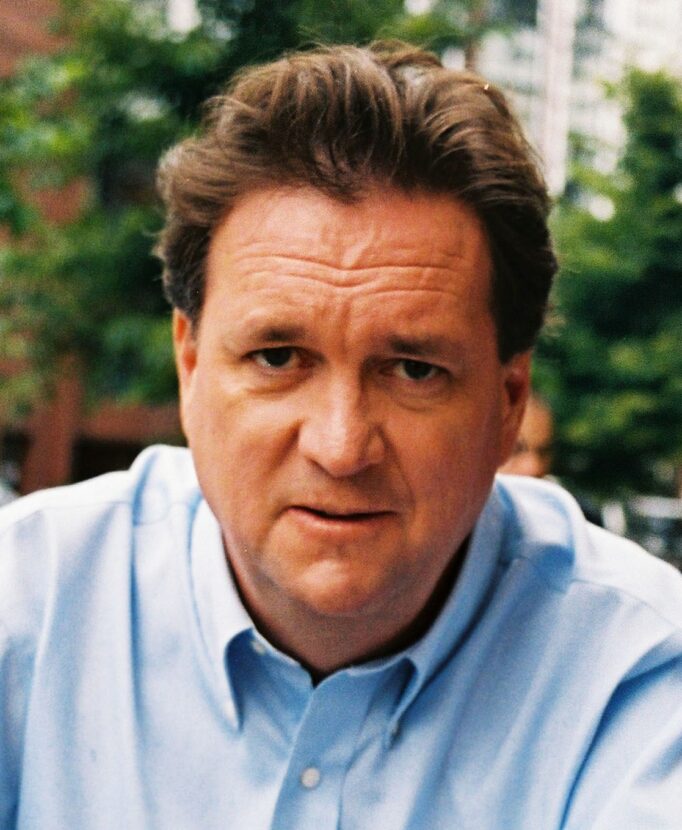Celeb Shot
Achieving Growth During Recessionary Times: History Teaches Us That What You Do Right Now Really Matters
Futurist and innovation expert Jim Carroll knows a bit about achieving growth in recessionary times. After the dot.com collapse and market downturn of 2001, and again after the global economic meltdown of 2008, he spent quite a bit of time speaking at corporate leadership meetings and offsite events for major organizations on the theme of how to stay focused on growth, opportunity and the future despite volatility. With that experience under his belt, he has developed a powerful framework of guidance on how you can stay focused on what comes next in terms of opportunity, innovation and the future despite uncertainty.

Hey, how about that stock market volatility!
I’ve been beating the drum for quite some time that we are headed into some sort of economic correction or downturn – and yet, people tend to deny all the signals of the impact of a downturn until it is too late. The result is that attitudes towards the future suddenly shift, away from relentless market optimism to a rather depressing outlook based on pessimism.
And too much pessimism, too fast and too furious, can cause you to lose out on the big opportunities that the future presents. Why? Because history reminds us of this fact!
The future won’t wait for your panic to subside!
futurist Jim carroll
Our Future Attitude Matters More Than Ever When Volatility Strikes
To a degree, market sentiment impacts the way that we approach the future – when people are hammered by volatility and uncertainty, they start to focus on the short term, and forget about long term opportunities.
Yet the future tells us one certainty: big opportunities come from big ideas sponsored by leaders with big dreams.
Are you in that mindset? What are you doing to stay in a growth mindset?
Have you learned the powerful lessons that the long term winners in every economic downturn are those who focus on growth and the future at the outset of the downturn?
The Seven Stages of Economic Grief
Here’s what I think is going on right now. There are many organizations entering a state of absolute paralysis due to our post-Covid challenges, and idea factories are being turned off. The result is that we’re not just entering an economic recession, we’re entering another idea recession, similar to what occurred with the last downturns in 2001 and again in 2008.
What is so different this time is the absolute speed with which ideas are shutting down — the paralysis in some organizations at the leadership level is absolutely stunning. This got me thinking about the fast paced events of the last few weeks in the context of the seven stages of economic grief.
Every time we see a big stock market pullback and talk of recession, people and the organizations they work for can go into a state of shock. Then, there is the process of denial – it can’t be that bad. But as the reality of the downturn becomes clear – supply chain challenges, staffing shortages and more – denial kicks in. Inevitably, anger is the result – gas prices anyone? Finally, they begin to move through the process of bargaining, depression, and eventually acceptance and hope.
What if an organizations could move to the latter phase faster?
History shows us that it’s those organizations who eventually win in the race to the future.
History tells us that only 10% of organizations become breakthrough performers during a recession – because they decide to double down on innovation and opportunity despite lingering and pervasive uncertainty! 60% are simply marginal performers during a downturn, undertaking the bare minimum to get by. The remaining 30%? They either don’t make it – they go bankrupt, are bought out, or disappear altogether.
I came to realize once again, with the fast moving events of 2022, that things have happened so fast that many organizations still find themselves in the “shock” and “denial” phase. And here’s what I know from the historical record – they’ll be the innovation laggards, among that 60% or 30%.
Then there are the innovation leaders – the 10%. They’re prepared to keep the idea factory running, maybe not at full tilt, but running nevertheless. They know that despite the fact that vast sections of the economy are tanking, there are still growth markets and opportunities to step ahead of your competitors. There are opportunities to attack new markets, to streamline operations, build new brands, and grab customer mindshare in new ways.
There are plenty of opportunities to turn ideas into innovation. It all depends on where you want to be as, inevitably, we come out of the downturn.
Realigning to Future Opportunities
So, economic volatility? Take a chill pill!
Back in 2008, with the global economic meltdown, I wrote a post about ’10 Fundamental Trends That Don’t Change with the Meltdown.’ I thought I’d give it a small bit of an update since the message still holds.
So what are the trends that will drive future growth? Off the top of my head, there are several:
- Growth markets will continue to emerge. Back in the 19th century, the head of the US Patent Office stated that “everything that can be invented has been invented.” Such silliness! Right now, there are hundreds of thousands of new products, markets, industries, and ideas being built and explored. The future isn’t over. Its arrival has just slowed to a degree in some industries; in other industries, this market blip and volatility will barely be noticeable.
- Leaders in existing markets will grow through innovation. My own gut feel is that there are a lot of organizations out there approaching this recession differently, based on lessons learned from previous downturns. They’re innovating in their markets; they’re working on customer retention; they’re investing in customer service in order to keep competitive; they’re talking about how to grow in a down market. I’m certainly seeing this given my advance bookings going forward. People want to talk about innovation and the future. That’s a great sign that the recovery is already underway!
- Healthcare and medical science will continue to see a significant transformation. A simple fact has emerged from Covid – our world of healthcare has changed forever! Yes, there are deep problems with staffing, skills, burnout, and spending – but beneath the surface, new medical knowledge is growing at a furious pace, science is accelerating and new discoveries are exploding – mRNA-based medicine is a massive change. This is a huge, long-term trend, but has big implications with the emergence of new careers, industries, professions, and companies. I’m bullish on science, and health is science.
- Green energy will continue to have more momentum. Some argue that the meltdown will defer everything having to do with this effort. I disagree; I think the corporate sector has discovered the cost-benefit that comes from green projects, and so they will continue to invest, which will drive innovation. Oil is over, batteries are the future, and gas cars are DOA given energy prices. We’ve passed the point where carbon industry leaders believe that doing the same old thing as in the past is going to continue in the future. I don’t see leading-edge research into solar, wind, and other alternatives slowing down any time soon.
- Technology will continue to hyper-innovate. Technology now dominates the disruption and pace of innovation in every single industry. Aside from the hype trends such as crypto, meta, and Web3, there continue to be massive opportunities for technology-driven growth. Cars become computers, agriculture moves to 24-hour farming, and retail continues to evolve to online sales domination. The fact is, I don’t see hi-tech innovation and R&D slowing down. Indeed, during the last recession, some of the biggest innovations – the iPhone – emerged from the minds of those inventing the future. There are a lot more billion-dollar markets still to emerge.
- Agility and flexibility will dominate. In the next several years, the manufacturing industry – globally and locally – will take the lessons being learned right now about supply chain challenges and relentless volatility, and turn those into opportunities for business model reinvention. As they do so, they’ll undergo a fundamental transformation in their thinking, structure, and capabilities that will ensure their success.
- The global idea machine will continue to influence innovation. Look, the Internet continues to have a profound impact on everything we do. Scientific discovery is speeding up; new discoveries continue to go forward at a furious pace. Eco-building design concepts are debated, shared, and then go global in an instant. From the global mind comes unprecedented innovation, new products, new companies, and new industries. And the fascinating thing is that there is a lot of backyard and garage tinkering going on right now, and that’s where the next product/market breakthroughs will come from.
- The next generation takes over. The boomers are a dispirited bunch right now; there’s not a lot of passion and enthusiasm with some of them to change the future, particularly given the status of their 401(k) plans – but they are now leaving the economy. At the same time, some of the younger generations are witnessing their first-ever downturn, and it’s probably pretty terrifying. Yet, they’re an entrepreneurial bunch, who have grown up with a mindset that inhales change, pursues multiple different opportunities, and collaborates like nothing we’ve ever seen before. I think they’ll shake things up pretty quickly.
- A faster world happens, well, faster. Simply put, faster news cycles mean that people get through difficult periods faster, at least in terms of mindset. Above I mention the ‘7 stages of economic grief’. Think about whether you think people are moving to the acceptance phase quicker. I believe they are, and I think this faster attitude shift, compared to a slower pace of acceptance in previous recessions, means that innovation will drive us out of this faster than we expect.
- Transformative thinking drives growth. Last but not least, we can’t discount the impact of folks like me who know the lessons of previous downturns. Every downside has an upside; breakthrough performers are those who focus on the future despite volatility. Big opportunities come from big ideas sponsored by leaders with big dreams.
Right now, we live in transformative times. Are you in that mindset?
I’m hugely optimistic.
How about you?
Events aren’t easy, but working with WSB is. WSB works with thousands of respected influencers, thought leaders, and speakers each year and our experienced sales team is committed to the success of your event. For more futurist speaker ideas, please contact us.
